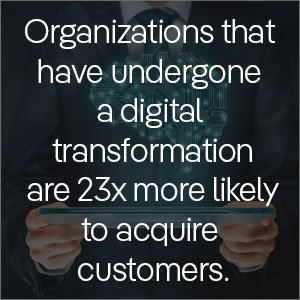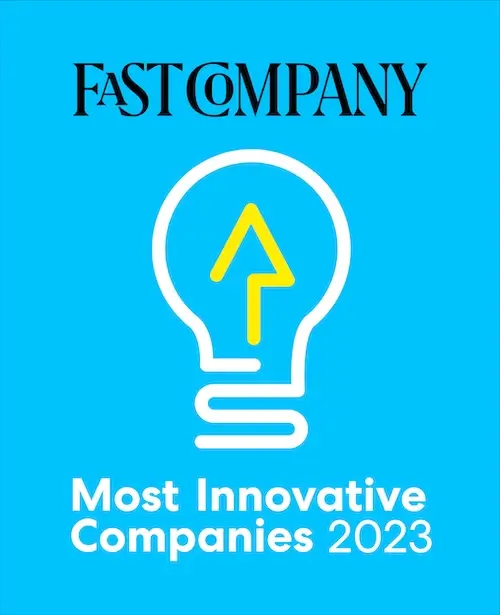Today is truly the age of artificial intelligence (AI) and automation, and it is driven by unrelenting, systemic digital change. But unlike previous waves of technological innovation, which helped spread the Industrial Revolution across different industries and geographies, over time, today’s advancements touch on several areas, globally and simultaneously.
In that way, the world’s economy is now subject to ‘Moore’s Law.’ (American engineer and businessperson Gordon Moore theorized in 1975 that the density of transistors in integrated circuits would, in fact, double each year, along with the increase in computing power.) Of course, trends concerning transistor density have slowed down to a halt. But general computing performance has risen unquestionably.
“Indeed, the most powerful insight from ‘Moore’s Law’ may be the simple idea that digital machines continue to improve and increase in capability over time,” Marco Iansiti writes in his 2020 book, Competing in the Age of AI. “Gradually, relentlessly, digital technology keeps getting better, more powerful, and more broadly applicable — with no slowdown in sight. Accelerated by advances in software technology, AI and ML algorithms, and computing architecture, successive generations of digital technology will continue to enable improvements in performance across a broad range of application areas.”
Think of digital technology, then, as an “inexorable engine of systemwide transformation.”
In a previous blog post, we looked at a few predictions for the future of legal technology. Here, we will delve into the importance of applying AI, in particular, to legal and other departments.
Applying AI and Automation to Enterprises
Largely due to legal technology’s massive growth, McKinsey Global Institute estimates that at least a quarter of lawyers’ current work can easily be automated with AI technology. What is more, McKinsey states that those organizations that have undergone a legal digital transformation are “23-times more likely to acquire customers, 6 percent more likely to retain customers, and 19-times more likely to be profitable.”
Accordingly, companies have indicated that digital transformation projects have accelerated in recent years. In its 2021 Global AI Adoption Index, IBM revealed that 31 percent of decision-makers said their company “has actively deployed A.I. as part of its business operations.” Forty-one percent, meanwhile, said they are “exploring, but have not deployed, AI in business operations,” which was up slightly from 39 percent in 2019.
Whatever level the AI investment is, though, today’s artificial investment is changing the way companies operate in fundamental ways, according to IBM’s Global AI Adoption Index. Among other things, it helps organizations automate key workflows, communicate with customers through virtual assistants, and even manage network security. But the report helpfully highlights the top three factors a company considers when evaluating AI providers:
- Automates processes to empower higher-value work (47 percent)
- Provides trust in business outcomes (40 percent)
- Able to be deployed anywhere, anytime — on any public cloud, private cloud, or on-premises (40 percent)
Completing AI and Automation Projects — the Right Way
Interestingly, Microsoft CEO Satya Nadella wrote about his company’s own digital transformation — within the context of AI — in his 2017 book, Hit Refresh. “AI is the runtime that is going to shape all of what we do going forward,” Nadella wrote, later explaining that “every organization will need to have what I describe as tech intensity … to be a fast adopter of digital technology … to build their own proprietary digital capability.” He very clearly embraced a mindset centered around leveraging data, to make far better business decisions.
As the universal engine of execution — and the foundation of organizations’ operating models — AI is redefining how companies execute tasks. It is dictating how they operate, deliver value, and compete — the very “runtime” to which Nadella refers. Microsoft, for instance, has supported large-scale digital transformations, delivering “real, measurable results,” according to News.Microsoft.Com. But true digital transformation is not about individual and separate achievements. It is about “recalibrating the entire organization around collecting, analyzing, and using data — it is about becoming an organization with the ability to learn and evolve.”
More specifically, companies — like IBM and Microsoft — that have digital transformation top of mind should:
- Possess a growth mindset — and identify employee attributes that allow this mindset to flourish
- Become intelligence-driven — by guiding digital transformation and applying enterprise technology to everyday business problems
- Redesign business around data (and have digital feedback loops) — so data is collected and used to optimize processes by AI-enabled applications
Looking at the Future of Applying AI and Automation
When it comes to applying AI and automation, then, legal and companies will need to shift their individual philosophies and move beyond traditional concepts of competition.
“As digital networks and AI increasingly capture our world, we are seeing a fundamental transformation in the nature of [companies],” Marco Iansiti writes in Competing in the Age of AI. “This removes historical constraints on the scale, scope, and learning, and creates both enormous opportunity and extraordinary turbulence.”
He continues: “… Leading through these changing times will require a new kind of managerial wisdom, steer organizations from full-scale firms to new ventures, and from regulatory institutions to communities.”
The implications of this intelligence are important in a variety of areas — most of all in reshaping the mindset of a generation of corporate leaders and coming up with new ways of looking at things and doing business. And the very best, as Iansiti points out, has yet to come.
We will examine the so-called ‘fusion skills’ legal and other teams’ need to complete their legal digital transformation in a future blog post. In the meantime, you can learn more about the enterprise impact of unified legal platforms — embedded with artificial intelligence — by downloading our CLM Impact Research Report. ContractPodAi Cloud, for example, delivers deep visibility into all legal documents, which helps in-house legal teams make their case and justify their own value — in terms that matter to corporate leadership — and change the perception of legal from a total cost center to a true value creator.
Author:

Sarvarth Misra
Connect with us on Linkedin










